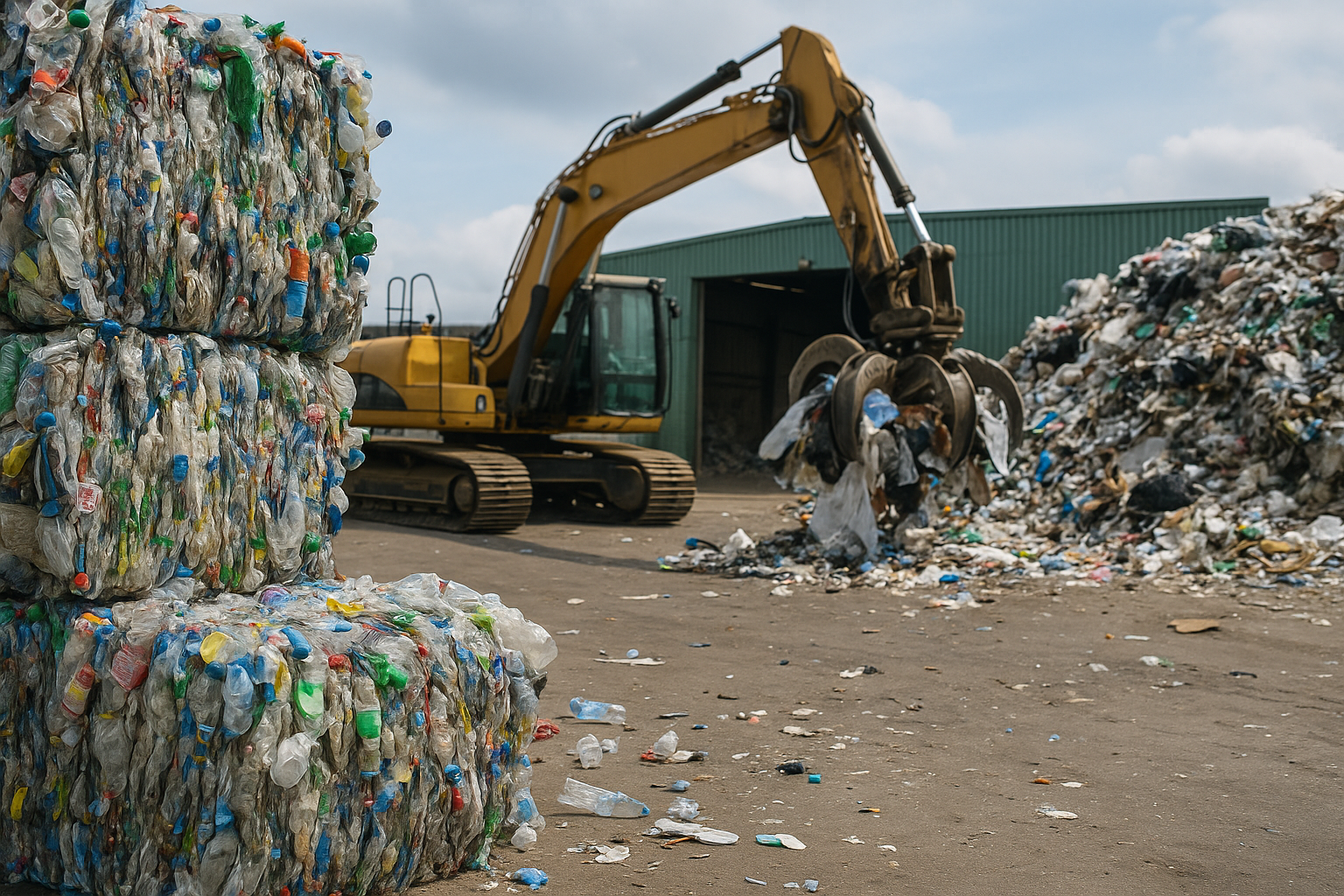Smart technologies redefine waste management for sustainable urban futures
The authors argue that waste, often seen as a disposal problem, is increasingly becoming a strategic urban resource that can generate jobs, support green industries, and fuel local economies. By analyzing research clusters through semantic network modeling, the study identifies seven thematic communities, including AI-driven waste classification, blockchain-enabled traceability, IoT-based logistics, smart collection systems, and citizen participation.

Cities can transform waste from an environmental burden into a key economic resource by combining digital technologies and circular economy practices, says a new study. The findings stress that successful transitions depend not only on innovative tools like AI, blockchain, and IoT, but also on integrated governance, inclusive policies, and targeted investment.
Published in Urban Science and titled “Waste and the Urban Economy: A Semantic Network Analysis of Smart, Circular, and Digital Transitions”, the research draws on over 2,000 scientific publications to map emerging trends and future directions at the intersection of waste management, urban circularity, and smart technologies.
Waste as an economic driver in smart circular cities
The authors argue that waste, often seen as a disposal problem, is increasingly becoming a strategic urban resource that can generate jobs, support green industries, and fuel local economies. By analyzing research clusters through semantic network modeling, the study identifies seven thematic communities, including AI-driven waste classification, blockchain-enabled traceability, IoT-based logistics, smart collection systems, and citizen participation.
The review highlights that cities advancing in the circular economy paradigm use waste as a feedstock for new value chains, such as producing energy from waste, recycling materials into new products, and creating data-driven resource management platforms. These initiatives not only reduce landfill use and emissions but also boost economic activity by turning linear waste streams into circular value loops.
The findings show that digital transformation is central to achieving these gains. For example, AI models improve waste-sorting accuracy, blockchain ensures transparent tracking of recycled materials, and IoT sensors optimize collection routes, reducing operational costs and improving the efficiency of municipal waste systems.
However, the authors note that technological potential is often undercut by fragmented governance and uneven policy support, especially in smaller cities with limited institutional capacity. Without cohesive frameworks and adequate funding, many promising pilot projects fail to scale into city-wide solutions.
Challenges in scaling smart waste systems
The study identifies persistent barriers that limit the effectiveness of smart circular transitions. One key challenge is data and interoperability. Cities often use disparate systems that cannot communicate effectively, preventing seamless integration of smart waste solutions across departments and service providers.
The review also flags social and ethical concerns, warning that automation in waste management, while improving efficiency, may displace informal workers or leave marginalized communities behind if inclusive policies are not implemented. This makes equity and citizen engagement critical elements of successful circular transitions.
Another challenge involves technology trade-offs. While blockchain improves transparency in recycling supply chains, its energy-intensive operations can undermine sustainability goals if not paired with low-carbon energy sources. Similarly, widespread use of IoT devices requires careful attention to privacy and cybersecurity risks.
The authors further highlight that investment and policy fragmentation slow progress. Many European cities rely on short-term pilot projects funded by regional or EU programs, but lack the stable financing models needed for long-term scaling. Without consistent policy alignment between national and municipal authorities, transitions remain patchy and uneven.
Roadmap for a resilient, inclusive circular economy
The authors propose a comprehensive roadmap for integrating technology, governance, and equity in urban waste transitions. They call for:
- Cross-cluster innovation: Linking AI-driven classification systems with blockchain-based traceability to build transparent and accountable recycling chains.
- Impact-based metrics: Expanding evaluation beyond efficiency gains to include reductions in emissions, savings in fuel and logistics, and improvements in material recovery rates.
- Inclusive policy frameworks: Designing programs that retrain workers affected by automation and empower citizens to participate in local circular initiatives.
- Strategic governance: Creating multi-level governance models that align EU directives, national strategies, and local implementation plans to avoid policy fragmentation.
- Forward-looking research: Exploring future scenarios involving robotics, decentralized AI agents, and quantum-optimized logistics for waste management by 2035.
Waste management can no longer be treated as a siloed service. Instead, it must be viewed as part of the urban economy and climate resilience strategy, requiring joint action from policymakers, businesses, and citizens.
- FIRST PUBLISHED IN:
- Devdiscourse










